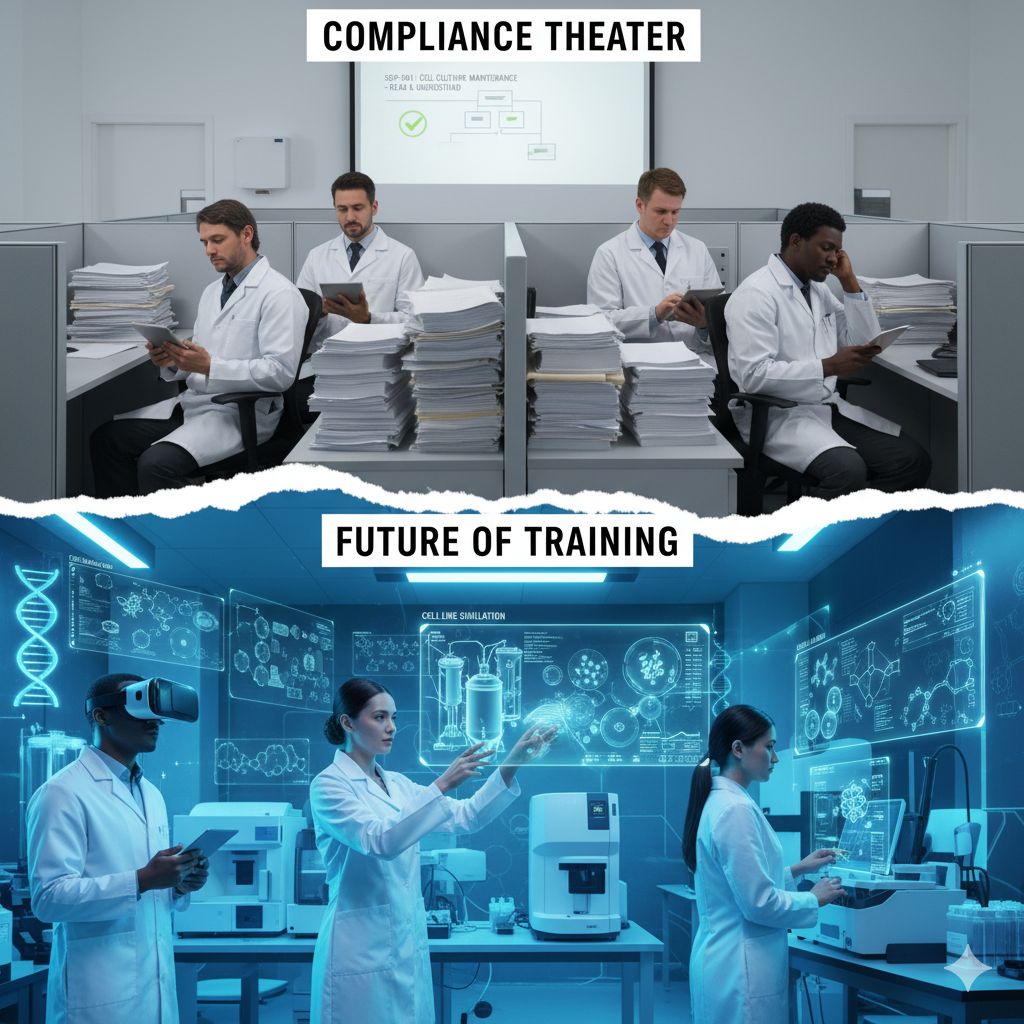
Pharma Training is ‘Compliance Theater’… And The FDA Knows It.
We’ve all been there. You start a new role and you’re instantly buried under a mountain of 100+ SOPs (many irrelevant to your job)
There’s simply not enough time to do the job AND do this training well. So we skim, we click, and we take a quick quiz just to 'prove' we didn’t just click.
That’s not competence; it’s a shared institutional fiction.
This reliance on passive "Read and Understand" for complex Standard Operating Procedures (SOPs) is a huge quality risk for at least 3 reasons:
- Cognitive Overload: Burying essential knowledge in a sea of details.
- Knowledge Decay: We forget, and errors follow.
- Missing the 'Why': Staff memorize the 'how', not the 'why' behind SOPS.
It’s a bad situation for companies, employees, regulators, and patients alike.
The Regulators Know.
Observations show that inspectors aren't just checking signatures anymore.
The FDA scrutinizes training timestamps—comparing completion against when tasks were actually performed. They look for the operator who claims to have trained on 100 pages of SOPs before lunch.
Further-the FDA is now auditing evidence of skill. They are demanding proof of competence, not just training documentation.
The Time to Change is Now:
With over $400 billion in announced investment in US manufacturing, thousands of new staff (many from outside our industry) will need to be qualified, fast.
This is both a massive risk and an opportunity to fix training.
Companies that rapidly upskill this new labor pool through innovative training will gain a significant competitive advantage, build goodwill with regulators (and staff!), and ensure quality; while lowering cost and operational risk.
This requires a shift however- to effective, continuous, experiential learning.
3 Elements to Move Beyond ‘Compliance Theater’
Here’s how to pivot from passive reading to auditable, validated skills:
1) Microlearning & JIT (Just-in-Time): Deploy reinforcement to refresh on SOPs prior to use: Companies using continuous microlearning have documented up to a 60% reduction in training time and a 52% decrease in compliance errors.
2) Immersive Practice (VR/AR): Utilize Virtual Reality for high-risk aseptic or complex equipment procedures. VR can accelerate qualification for complex tasks, condensing 12 months of training into just 2 months.
3)AI Simulation & Scenario Platforms: Adopt dynamic platforms that convert organizational expertise into real world scenarios. This measures complex decision-making and judgment under pressure, providing the auditable data regulators demand to prove true competence—and instilling the 'why' knowledge critical for success in complex situations.
If your organization is ready to move beyond 'compliance theater' and validate real competence, let's talk!
Check out the Cymorg platform link below to see this in action.
